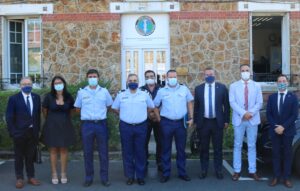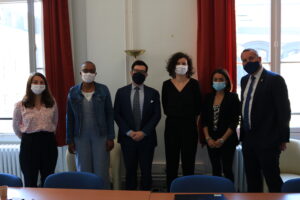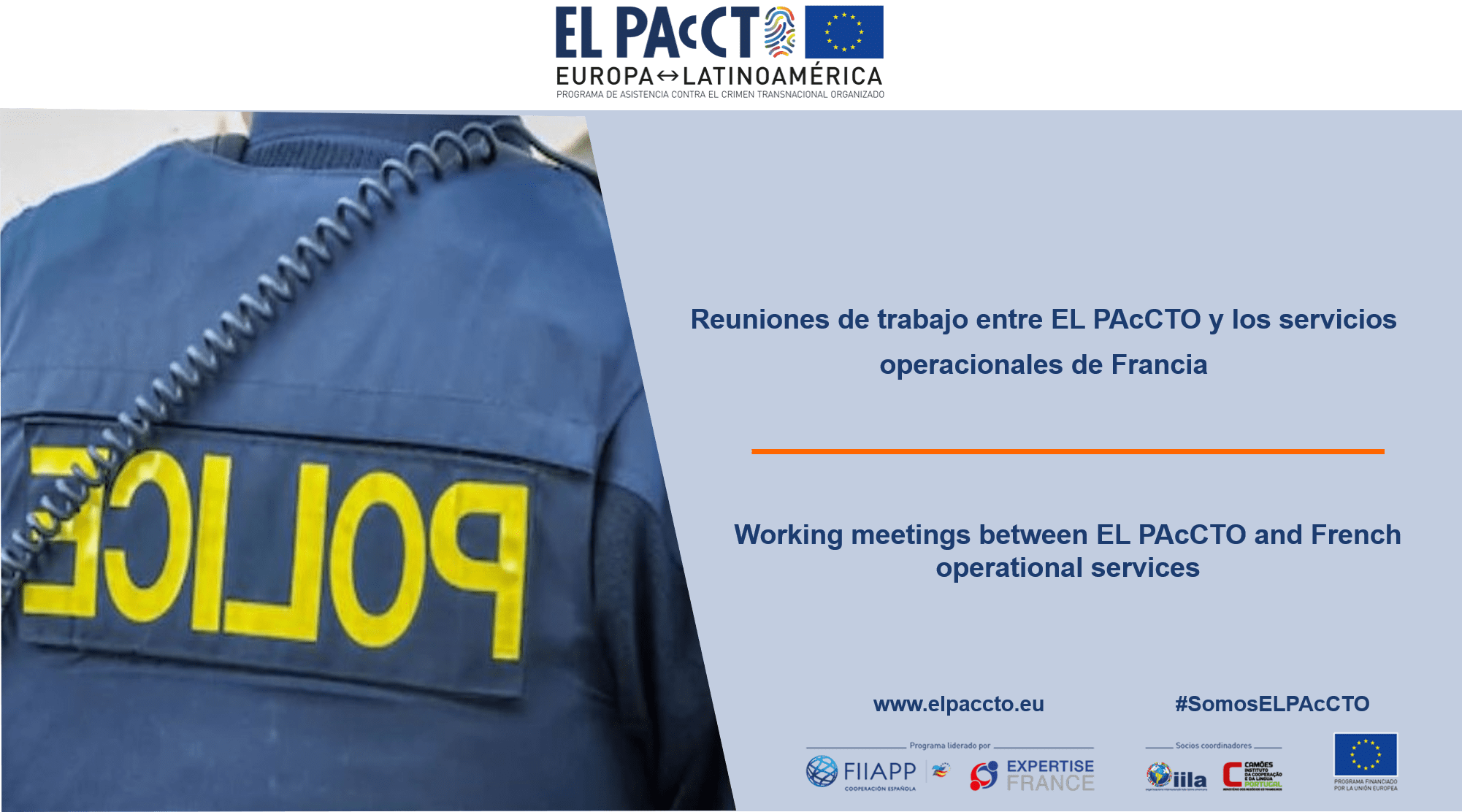The direction of EL PAcCTO and the police cooperation component have met with different departments of the French Ministry of the Interior, including the Directorate of International Cooperation (DCI) and different operational services of the General Directorate of the National Gendarmerie (DGGN), the Ministry of Justice and the General Directorate of the National Police (DGPN).
The objective was to present the progress of the programme arising from the cooperation with the French Ministry of the Interior, define future collaborations, synergies and relations with Latin America and thus continue to share good European experiences in terms of police cooperation in the fight against Transnational Organised Crime.
A meeting was also held with the Central Office for the Fight against Environmental Damage and Public Health (OCLAESP) in order to exchange information and find effective solutions in the fight against environmental crimes in Latin America. Colonel Ludovic Ehrhart, second in command in the unit, Captain, Mr. David Aires, a member of the Jaguar Network, and an environmental scientist were in charge of receiving the Programme team. All of them have committed to continue collaborating with EL PAcCTO through the Jaguar Network. They also showed interest in continuing to schedule activities within Operation Harpie between the Brazilian and French authorities on illegal mining issues.

Commitment of the Ministry of Justice in the mobilisation of experts
The management of EL PAcCTO received a commitment from the French Ministry of Justice to expand its participation in the Programme through the mobilisation of more experts from the Ministry’s jurisdictions and directorates. On the other hand, the Directorate of Prison Administration announced that it is in the process of appointing a new deputy coordinator for the Prison Systems component of the Programme, who could join the team very soon.
The representative from the National School of Prison Administration strongly supported the initiative to create a network of prison training schools between Latin American and European countries and proposes to play a leading role in this.

Working meetings with various departments of the National Police
The deputy director of the Fight against Organised Crime on the Central Directorate of the Judicial Police, Mr. Frédéric Malon, and other representatives from his directorate received the EL PAcCTO team to address issues related to human trafficking and arms trafficking. At the meeting, they expressed their interest in specifically supporting the Joint Investigation Teams (JITs) as an efficient tool in the fight against trafficking. They also underlined the need to work on financial aspects of the fight against trafficking in human beings.
The Central Office for the Fight against Trafficking in Human Beings (OCRTEH) expressed its interest in developing close cooperation and mentioned its willingness to actively participate in the exchanges with the police cooperation network for the investigation of cases between Latin America and the European Union, promoted by EL PAcCTO.
Regarding the threats in the different countries attached to EL PAcCTO, the Central Service for Arms, Explosives and Sensitive Materials (SCAEMS) has emphasised its availability to support more activities in the Programme and participate in the ARCO police cooperation network, it recalled the importance of strengthening the exchange of information on both sides of the Atlantic.
On the other hand, the recently created Anti-Narcotics Office (OFAST) is implementing a priority policy for the French government and wants to strengthen its international presence. It considers that working with EL PAcCTO represents an opportunity to increase its presence in Latin America, particularly in countries that cultivate the coca plant and in those that are located along the new trafficking routes.
The importance of coordinating with partner countries in cross-border cooperation centres
On the other hand, the Border Police (PAF) shared information on cross-border cooperation, work coordination and specific knowledge of the operational and functional organisation of the CCPAs in which France participates. It also provided public access documentation that sets out the fundamental roles of the police and customs cooperation centres. Information between partner countries and cooperation techniques that may serve as inspiration for the development of cross-border cooperation centres, which are promoted in Latin America, such as the Paso Canoas Binational Police Cooperation Centre.



